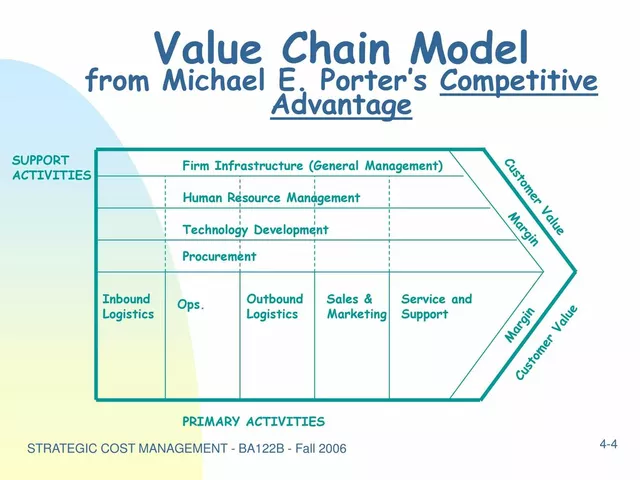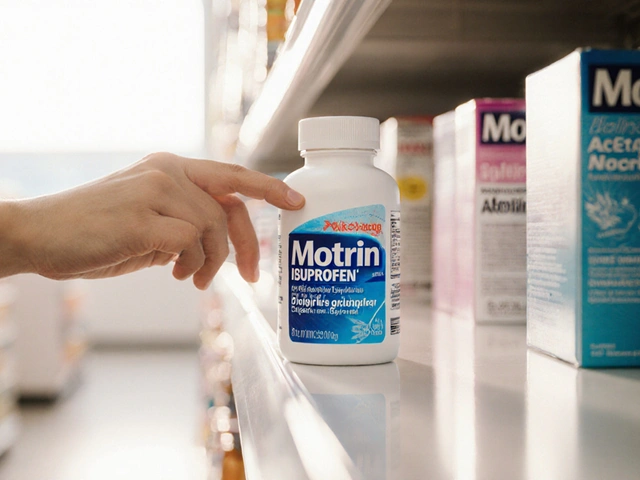Psychotropic Medication Weight Gain Calculator
Medication Selection
Results & Recommendations
Expected Weight Gain
Personalized Recommendations
Intervention Options
Consider these options for weight management:
- Metformin: Can reduce weight gain by 2-4 kg
- Topiramate: May produce 3-5 kg loss
- GLP-1 receptor agonists: Shows 5-8% weight loss
- Structured diet: 500 kcal deficit daily
- Regular exercise: 150 min/week cardio + resistance training
When prescribing Psychotropic Medications drugs that affect mood, perception, or behavior, including antipsychotics, antidepressants, and mood stabilizers, clinicians often face a tug‑of‑war: control psychiatric symptoms without turning the patient into a weight‑gain case study. The good news is that a blend of smart drug choices, lifestyle tweaks, and occasional adjunct drugs can keep the scale in check while the mind stays stable.
Key Takeaways
- Second‑generation antipsychotics, especially clozapine and olanzapine, carry the highest weight‑gain risk (up to 10 kg in the first year).
- Switching to lower‑risk agents like aripiprazole, lurasidone, or paliperidone can shave off several kilograms without sacrificing efficacy for many patients.
- Structured diet, regular exercise, and early metabolic monitoring cut the chance of clinically significant weight gain by 30‑40%.
- Adjuncts such as metformin, topiramate, or GLP‑1 receptor agonists add 2‑5 kg of loss on top of lifestyle efforts.
- Genetic testing (e.g., MC4R variants) and digital health tools are emerging ways to personalize the approach.
Why Weight Gain Happens with Psychotropic Drugs
Most weight‑gain mechanisms trace back to three receptor actions: histamine‑1 antagonism, serotonin‑2C blockade, and dopamine‑2 inhibition. These pathways crank up appetite, lower basal metabolism, and shift fat storage to the abdomen. A 1999 landmark study by Allison et al. proved that second‑generation antipsychotics (SGAs) top the list for metabolic impact.
Weight gain isn’t just a numbers game. A rise of ≥7 % of baseline weight, as defined by Pérez‑Iglesias et al. (2014), pushes patients toward metabolic syndrome, heart disease, and a life‑expectancy gap of up to 20 years.
Medications Ranked by Weight‑Gain Potential
| Medication | Risk Level | Avg. Weight Gain |
|---|---|---|
| Olanzapine | High | 8-10 |
| Clozapine | High | 8-10 |
| Quetiapine | Moderate | 4-6 |
| Risperidone | Moderate | 3-5 |
| Paliperidone | Low‑moderate | 1-2 |
| Aripiprazole | Low | 0.5-1 |
| Lurasidone | Low | 0.7 |
| Asenapine | Low | 1 |
Antidepressants such as mirtazapine, paroxetine, and tricyclics also add 2-4 kg on average, while mood stabilizers like lithium and valproate sit in the same ballpark.
Step‑by‑Step Weight‑Management Plan
- Baseline Assessment: Record weight, BMI, waist circumference, fasting glucose, lipid panel, and blood pressure before starting or changing medication.
- Risk Stratification: Use the table above to pick the lowest‑risk drug that still controls psychiatric symptoms. If a high‑risk drug is essential (e.g., clozapine for treatment‑resistant schizophrenia), plan extra safeguards.
- Medication Review: Discuss potential switches with the patient. For example, swap olanzapine → aripiprazole or risperidone → lurasidone when clinically feasible.
- Lifestyle Blueprint:
- Nutrition: 500 kcal deficit, focus on high‑protein, low‑simple‑carb meals.
- Physical Activity: 150 min/week moderate‑intensity cardio + twice‑weekly resistance training.
- Behavioral Coaching: Weekly goal‑setting, food‑logging, and stress‑management techniques.
- Adjunct Pharmacotherapy (if weight climbs >5 % after 8‑12 weeks):
- Metformin: 500‑1000 mg BID, shown to blunt antipsychotic‑induced gain by 2-4 kg.
- Topiramate: 25‑100 mg daily, produces 3-5 kg loss in RCTs.
- GLP‑1 receptor agonists (e.g., liraglutide): 1.8 mg daily, yields 5‑8 % body‑weight reduction in early trials.
- Digital Health Support: Apps like Moodivator an FDA‑cleared platform that pairs mood tracking with personalized diet and activity prompts add roughly 3 % extra weight loss compared with usual care.
- Ongoing Monitoring: Re‑measure metabolic parameters every 3 months. Adjust plan if weight gain exceeds 2 % of baseline in any quarter.
Clinical Monitoring Checklist
- Weight & BMI: baseline, then monthly for the first 6 months.
- Waist circumference: every 3 months.
- Fasting glucose & HbA1c: baseline, 3‑month, then semi‑annual.
- Lipid panel: baseline, 6‑month, then annually.
- Blood pressure: each clinic visit.
Embedding this checklist into EMR prompts aligns with the American Psychiatric Association’s 2017 guidelines and improves early detection by 15 %.

Future Directions: Toward Precision Medicine
Genetic variants such as MC4R polymorphisms predict who will gain the most weight on SGAs. The NIMH’s 2022 agenda calls for routine pharmacogenomic testing to inform drug choice. Early data suggest that patients with the risk allele lose 40 % less weight on metformin, steering clinicians toward GLP‑1 agonists instead.
Beyond genetics, integrated care pathways-psychiatrists working hand‑in‑hand with dietitians, exercise physiologists, and primary‑care physicians-are proving most effective. The Veterans Health Administration’s mandatory quarterly metabolic screens cut undiagnosed metabolic syndrome by roughly one‑third.
Quick Troubleshooting Guide
- Patient gains >5 % weight in 2 months: Verify adherence to diet/exercise, consider adding metformin or switching to a lower‑risk antipsychotic.
- Persistent fatigue despite weight control: Screen for hypothyroidism or anemia; adjust psychotropic dose if sedation is a factor.
- Medication switch destabilizes mood: Re‑introduce the original drug at a lower dose while adding a weight‑neutral adjunct; involve a psychiatrist experienced in cross‑titration.
- App engagement drops: Replace with a simple paper log or involve a caregiver for accountability.
Frequently Asked Questions
Which psychotropic drug causes the most weight gain?
Olanzapine and clozapine are at the top, with average gains of 8-10 kg in the first year of treatment.
Can I lose weight while staying on an antipsychotic?
Yes. A combination of lifestyle changes, regular metabolic monitoring, and adjunctive meds like metformin can achieve 3‑5 kg loss even without switching the antipsychotic.
Is metformin safe for non‑diabetic patients?
Clinical trials show metformin is well‑tolerated in non‑diabetic patients and reduces antipsychotic‑related weight gain by about 2-4 kg.
How often should I monitor my blood work?
Follow the APA guideline: weight, waist, glucose, lipids, and blood pressure at baseline, then every three months for the first year, and semi‑annually thereafter.
Are there any new drugs that don’t cause weight gain?
Newer SGAs like lurasidone and cariprazine have a much lower metabolic profile, but no antipsychotic is completely weight‑neutral over long‑term use.




Aaron Kuan
October 24, 2025 AT 21:37Weight gain on meds? Yeah, it’s a nightmare.
Brett Witcher
October 25, 2025 AT 21:37When second‑generation antipsychotics antagonize the histamine‑1 receptor, they precipitate hyperphagia by attenuating satiety signals. Concurrently, serotonin‑2C blockade diminishes the inhibitory tone on appetite, leading to unchecked caloric intake. Dopamine‑2 inhibition further depresses basal metabolic rate, compounding the weight‑gain cascade. The literature unequivocally demonstrates that olanzapine and clozapine occupy the uppermost stratum of this metabolic hierarchy. Empirical data indicate an average increase of eight to ten kilograms within the inaugural year of therapy. Moreover, meta‑analyses reveal a 30 % reduction in weight gain when metformin is co‑prescribed alongside high‑risk agents. It is incumbent upon clinicians to implement systematic metabolic monitoring at baseline and at three‑month intervals. Failure to do so not only jeopardizes physical health but also undermines therapeutic adherence. Lifestyle interventions, when structured around a 500‑kilocalorie deficit, yield an additional two to three kilograms of loss over six months. Resistance training, performed biweekly, synergistically enhances insulin sensitivity. Digital health platforms, such as Moodivator, have been shown to incrementally improve compliance by roughly three percent. Genetic testing for MC4R variants offers a nascent avenue for personalized pharmacotherapy. Patients harboring risk alleles may exhibit attenuated response to metformin, thereby necessitating alternative agents like GLP‑1 agonists. The integration of dietitians into the psychiatric care team has been correlated with superior weight outcomes. Ultimately, a multidisciplinary approach remains the gold standard for mitigating antipsychotic‑induced obesity. Adherence to these evidence‑based protocols should be considered a professional imperative.
Benjamin Sequeira benavente
October 26, 2025 AT 20:37Drop the junk carbs, hit the gym at least three times a week, and watch the scale obey. No excuse is big enough to beat a solid habit.
Shannon Stoneburgh
October 27, 2025 AT 20:37Weight gain isn’t just a number; it spikes heart risk. Keep a weekly log and act fast.
Nathan Comstock
October 28, 2025 AT 20:37Our nation’s health hinges on disciplined minds; letting meds sabotage waistlines is unacceptable. The data are crystal‑clear: low‑risk antipsychotics exist, and we must demand them. Anything less is a betrayal of American resilience.
Terell Moore
October 29, 2025 AT 20:37Ah, the timeless dance of prescribing “effective” drugs while ignoring the inevitable kilogram parade. One would think clinicians could juggle neurotransmission without adding extra baggage.
Lisa Woodcock
October 30, 2025 AT 20:37I hear your frustration, and it’s real-patients deserve both mental stability and physical health. Compassionate care means walking that tightrope together.
Sarah Keller
October 31, 2025 AT 20:37Philosophically, we chase the illusion of a cure while shackling the body with weight. Smash that paradox by refusing complacency and demanding metabolic vigilance. The future belongs to those who act now.
Veronica Appleton
November 1, 2025 AT 20:37Start with a simple daily weigh‑in track food cravings and move gradually.
the sagar
November 2, 2025 AT 20:37The pharma lobby hides the real cure for weight gain.